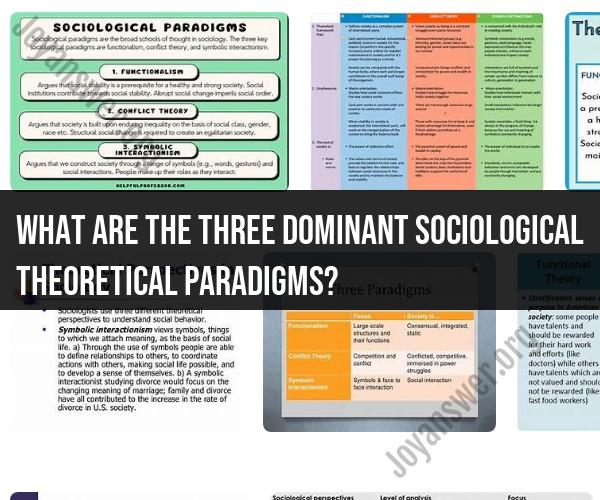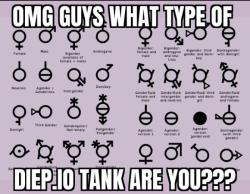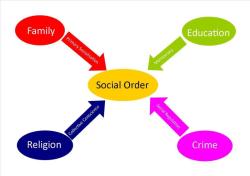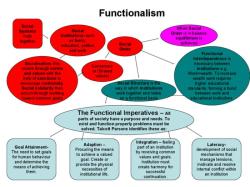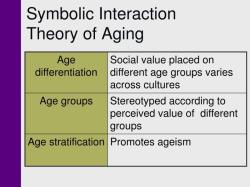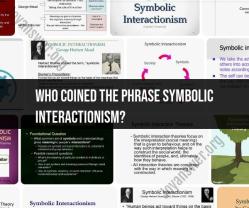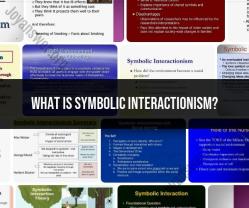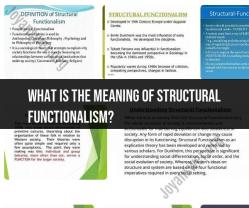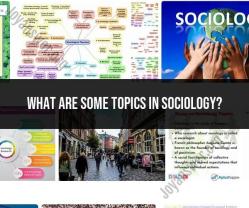What are the three dominant sociological theoretical paradigms?
Sociology, as a field of study, encompasses a variety of theoretical perspectives that help researchers and scholars understand and analyze society. While there are many sociological theories and paradigms, three dominant theoretical paradigms often serve as the foundation for sociological analysis:
Structural Functionalism:
- Key Ideas: Structural functionalism views society as a complex system of interrelated parts that work together to maintain stability and equilibrium. It emphasizes the functions and roles that various social institutions play in maintaining social order.
- Key Figures: Emile Durkheim is a prominent figure associated with this perspective.
- Core Concepts: Concepts like social integration, social solidarity, and the functions of institutions (e.g., family, education, religion) are central to this paradigm.
- Example: In a functionalist analysis, education serves the function of transmitting knowledge and cultural values, contributing to social cohesion and stability.
Conflict Theory:
- Key Ideas: Conflict theory views society as characterized by inherent inequalities and power struggles. It emphasizes the role of conflict, competition, and the exploitation of one group by another in shaping social dynamics.
- Key Figures: Karl Marx and Max Weber are notable figures associated with conflict theory.
- Core Concepts: Concepts like class struggle, inequality, exploitation, and the role of social institutions in maintaining power imbalances are central to this perspective.
- Example: In a conflict theory analysis, the unequal distribution of wealth and resources in society leads to class conflict, with the wealthy exploiting the working class.
Symbolic Interactionism:
- Key Ideas: Symbolic interactionism focuses on the role of symbols, language, and social interactions in shaping individual and collective behavior. It explores how people create and interpret meaning in their interactions.
- Key Figures: George Herbert Mead and Erving Goffman are associated with symbolic interactionism.
- Core Concepts: Concepts like symbols, gestures, role theory, and the looking-glass self (how individuals see themselves through the eyes of others) are central to this paradigm.
- Example: In a symbolic interactionist analysis, researchers might study how individuals use nonverbal cues (e.g., body language) to convey meaning and establish social norms during face-to-face interactions.
These three dominant sociological theoretical paradigms provide distinct lenses through which sociologists can analyze and interpret the complexities of society. It's important to note that sociological research often combines elements from multiple paradigms to gain a comprehensive understanding of social phenomena. Additionally, there are other sociological paradigms and theories, such as feminist theory, critical theory, and postmodernism, that contribute to the diverse landscape of sociological thought.
Exploring Sociological Theoretical Paradigms: A Comprehensive Overview
Sociological theoretical paradigms are broad frameworks that sociologists use to understand and explain social phenomena. The three dominant sociological theoretical paradigms are:
- Functionalism: Functionalism views society as a complex system made up of interrelated parts. Each part of the system plays a specific function, and all of the parts work together to maintain the stability of the system.
- Conflict theory: Conflict theory views society as a system of competing social groups. Each group has its own interests, and these interests often conflict with one another. Conflict theory focuses on how these conflicts shape social order and social change.
- Symbolic interactionism: Symbolic interactionism focuses on how people interact with each other using symbols. Symbols can be anything from words and gestures to objects and clothing. Symbolic interactionism focuses on how people use symbols to create meaning, communicate with each other, and build relationships.
The Three Dominant Sociological Theoretical Paradigms
Functionalism
Functionalism was the dominant sociological theoretical paradigm in the early 20th century. Functionalists view society as a complex system made up of interrelated parts. Each part of the system plays a specific function, and all of the parts work together to maintain the stability of the system.
Functionalists believe that all social institutions, such as the family, education system, and government, serve important functions for society. For example, the family socializes children, the education system prepares students for work, and the government provides essential services such as law enforcement and national defense.
Conflict theory
Conflict theory emerged in the mid-20th century as a challenge to functionalism. Conflict theorists view society as a system of competing social groups. Each group has its own interests, and these interests often conflict with one another. Conflict theory focuses on how these conflicts shape social order and social change.
Conflict theorists argue that functionalism ignores the inequalities and injustices that exist in society. They argue that society is constantly in a state of conflict, as different groups struggle to promote their own interests. Conflict theory has been used to explain a wide range of social phenomena, such as racism, sexism, and classism.
Symbolic interactionism
Symbolic interactionism emerged in the early 20th century as a reaction to both functionalism and conflict theory. Symbolic interactionism focuses on how people interact with each other using symbols. Symbols can be anything from words and gestures to objects and clothing. Symbolic interactionism focuses on how people use symbols to create meaning, communicate with each other, and build relationships.
Symbolic interactionists argue that society is not a fixed system, but rather a product of the interactions between individuals. They are interested in how people construct their social world, how they make sense of their experiences, and how they interact with others.
Critiques and Contemporary Applications of Sociological Paradigms
All three of the major sociological theoretical paradigms have been criticized. Functionalists have been criticized for ignoring the inequalities and injustices that exist in society. Conflict theorists have been criticized for being too pessimistic and for not providing solutions to the problems they identify. Symbolic interactionists have been criticized for focusing on the micro level and for not taking into account the macro level forces that shape social life.
Despite these criticisms, all three of the major sociological theoretical paradigms continue to be used by sociologists today. Each paradigm has its own strengths and weaknesses, and sociologists often draw on multiple paradigms to understand and explain social phenomena.
In addition to the three dominant sociological theoretical paradigms, there are a number of other paradigms that sociologists use, such as feminist theory, postmodern theory, and critical race theory. These paradigms offer different perspectives on social life and can be used to understand a wide range of social phenomena.
Sociological theoretical paradigms are important because they provide us with different ways of thinking about and understanding social life. By understanding these paradigms, we can better understand the forces that shape our world and the challenges and opportunities that we face.
